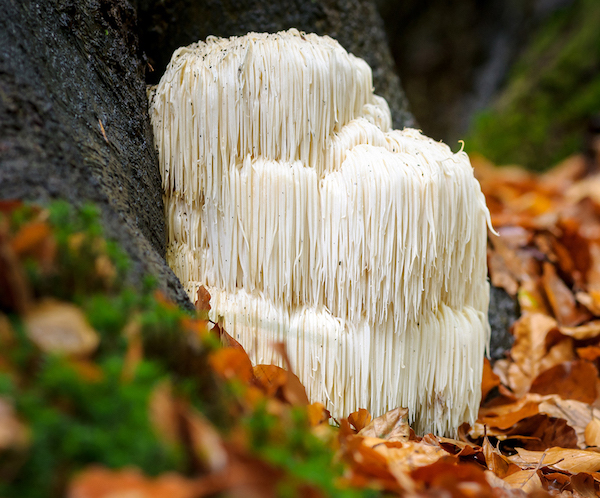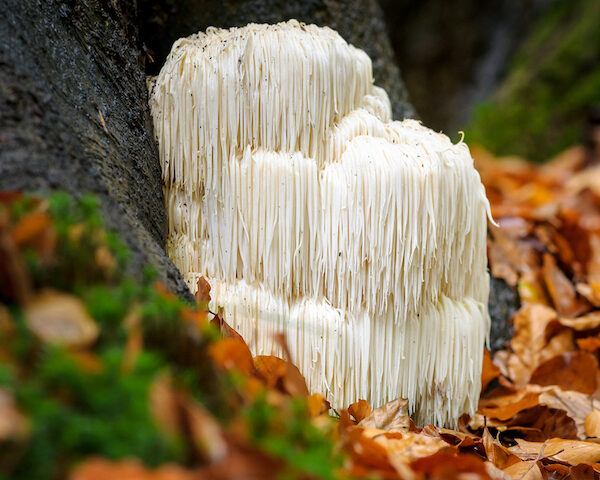The mushroom roaring to reduce inflammation and protect your brain

Lion’s Mane is a shaggy looking mushroom that’s been used in Chinese medicine for more than 1,000 years. It is recognized for its anti-inflammatory actions and its positive effects on the central nervous system. Modern-day studies confirm it may be beneficial for digestive and immune systems, but especially for the brain.
While most research is in animals or test tubes, studies clearly indicate that Lion’s Mane both protects the brain and encourages new nerve connections to form by reducing inflammation and increasing nerve growth factor. That has implications for both Parkinson’s and Alzheimer’s. The few clinical trials build on these findings and are very encouraging.
Clinical trials
A double-blind placebo-controlled study of 50-80 year-old Japanese men and women diagnosed with mild cognitive impairment were given 250 mg tablets containing 96% dry Lion’s Mane powder three times a day for 16 weeks. Participants experienced marked improvement in cognitive function compared with controls. Sadly, the improvements faded when the supplement was stopped.
In another small randomized clinical study, post-menopausal women were given 2 grams daily of Lion’s Mane fruiting bodies baked into cookies for 4 weeks. The women showed statistically significant reduction in anxiety and depression symptoms.
When a small group of people with ulcerative colitis were given a mushroom supplement containing 14% Lion’s Mane extract, symptoms were significantly reduced and quality of life improved after three weeks.
Pre-clinical research
In this category, Lion’s Mane has been studied a lot, and it delivered really promising results. It reduced injury from stroke, sped recovery from brain injury, reduced cancer spread, lowered blood sugar and triglycerides, and more. Here are a few examples:
Animal studies indicate Lion’s Mane improves object recognition and recognition memory, while a mouse model of Alzheimer’s showed Lion’s Mane increased nerve growth factor in the hippocampus (brain memory center) and reduced amyloid plaques.
In vitro, adding Lion’s Mane extract to cerebellar cells caused them to undergo myelination earlier and at a greater rate than controls. A neurotoxin-induced model of Parkinson’s disease treated with Lion’s Mane’s active components for 25 days; it significantly improved dopaminergic lesions and oxidative stress.
Lion’s Mane can speed recovery by 23-41% when given to rats with nervous system injuries. Lion’s Mane given to rats immediately after a stroke reduced the size of brain-related injury by 44%.
Rat’s fed a high-fat diet were given Lion’s Mane extract and in 28 days had 27% lower triglyceride levels and 42% less weight gain. Several animal studies show that Lion’s Mane can significantly lower blood sugar levels in both normal and diabetic animals.
A study of mice with colon cancer showed Lion’s Mane reduced the spread of cancer to the lungs by 69%.
Safety
Lion’s Mane has been used as both a food and medicine in Asia for thousands of years. Studies further indicate that the mushroom is safe, with no evident adverse effects.
REFERENCES




